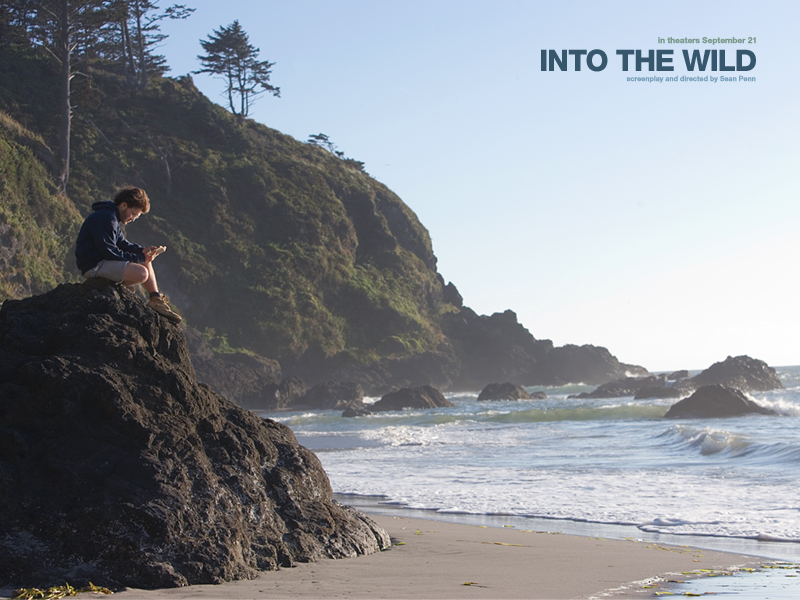Throwing Away the Map
 I just saw Into the Wild for the second time, and it was even better than the first.
I just saw Into the Wild for the second time, and it was even better than the first.Here is a recap of what I wrote before, with some added reflections.
The film was directed by Sean Penn, whose personality and opinions I have little use for, but whose artistry I find unsurpassed. It is based on the eponymous best-seller by Jon Krakauer, about Christopher McCandless, a young man who "dropped out," as they used to say in the sixties, only without "tuning in" to any movement or "turning on" with any known drug.
McCandless is played beautifully by Emile Hirsch, and the soundtrack by Michael Brook and Eddie Vedder achieves perfection. (I don't use that word very often.)
What McCandless did was abandon family, friends, future prospects, and affluent lifestyle, to embark on a quest without definition that, to judge by the film (I have not read the book), acquired definition as it went along. After two years of living as a voluntary hobo (he renamed himself "Alexander Supertramp"), a hippie (he bonded with a counter-cultural tribe living in RVs), and a latter-day alms-seeker, he trekked alone into the Alaskan wilderness, where after 112 days of foraging for food and living in an abandoned bus, he died of starvation.
Into the Wild is not only a visual masterpiece (all the more stunning for not having been generated by a computer) but also a masterpiece of philosophical story-telling. McCandless kept a diary, which along with the testimony of his sister, provide the outline of his character and story line. But most remarkably in this age of non-literary, even anti-literary film making, the film's other source is the books McCandless carried with him, not just in his knapsack but in his head. This film lacks all the prissy self-consciousness with which many American films portray literate characters.
Of all the authors mentioned and quoted, the one I wondered about most was Tolstoy. The film's great subject is the American ideal of individual freedom, its promise and pitfalls, played out on a richly rendered American canvas. (Among other things, it is a fine travelogue.) How does Tolstoy figure into that?
Stay with the film, all the way to the end, and you will see. Into the Wild possesses Tolstoy's most essential quality: an ability to move from the center of everyday existence to the outer periphery, where life and death and transcendence meet and touch; and to do it all with a sure hand that, in its power and wisdom, resembles the hand of God. This is the Tolstoy of the Confession, who journeys through doubt, cynicism, flight, and heartache; only to realize his yearning for human connection too late, at which point he must face his terror of death, which ends in a moment of transcendence that may or may not last beyond this life.
There are many questions about McCandless, who seems to have partly desired his own end. For example, he ventured into the wild with no map, so he did not know that the spring-swollen river that blocked his return could have been crossed by a hand-operated tram a quarter of a mile away.
To say this is to miss the point, however. As Krakauer has noted, McCandless was on a spiritual quest to find "a blank spot on the map," and because there are so few of these left, "he made the world a blank spot for himself, by throwing away the map."
March 15, 2009 9:52 AM
| Permalink
